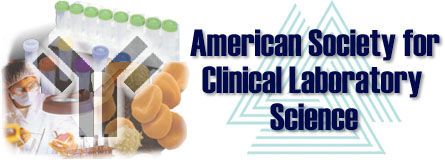
Document: Health Care Reform
Classification: Position Paper
Date: July 21, 2012
Status: Approved by ASCLS House of Delegates July, 2012
Background
The goals of health care reform in the United States should be to:
- Improve patient safety and quality of care
- Promote affordable, quality health coverage for all Americans
- Guarantee choice of health care providers and health plans
- Minimize barriers to coverage for people with pre-existing medical conditions
- Invest in evidence-based disease prevention and wellness
Position
ASCLS supports access to accurate and reliable laboratory testing.
Laboratory services are required for diagnosis, treatment, and monitoring of the causes of morbidity and mortality. Individual access should include choices of laboratory providers, as well as an appropriate geographical distribution of services, especially in rural and underserved areas. Funding for the adequate training of laboratory professionals must be provided in order to assure continued availability of services.
Health care reform must include mechanisms to monitor quality. When incentives exist to reduce expenditures, provisions must consistently be made to ensure quality is not compromised.
ASCLS supports reimbursement at appropriate levels for quality services.
Any change in funding that simply cuts reimbursement for health care services is short-sighted and jeopardizes access to and quality services, including laboratory testing. In order to achieve sustainable cost effectiveness in healthcare, reimbursement for laboratory services must support quality systems and adequate staffing of qualified laboratory professionals.
The current Medicare Clinical Laboratory Fee Schedule no longer reflects the day-to-day realities of the workplace and inhibits development of new technologies. ASCLS supports modernization of the Clinical Laboratory Fee Schedule in order to assure reimbursement for laboratory services that better reflects the cost of laboratory testing.
ASCLS supports the efficient and cost effective delivery of laboratory services.
The concept of comparative effectiveness presents an opportunity for this country to better utilize health care services. Research must include appropriate utilization of laboratory services, determined with effective input from the clinical laboratory community. Laboratory professionals should also be involved in patient safety initiatives and outcomes measurement, essential to determine the effect of a particular intervention on total patient care. The clinical laboratory professional has the required expertise and must contribute to these endeavors.
ASCLS supports consumer access to screening and preventive programs, as health care is transformed from treating acute illness to maintaining and improving health.
Including evidence-based screening tests in health plans at no or reduced cost to the consumer will result in improved disease detection, prevention or delayed onset of disease, and earlier treatment. In addition, long term costs should decrease as the severity and incidence of disease decreases. Evidence currently supports the value of a number of laboratory screening tests. As knowledge of the genome increases, the numbers and types of laboratory genetic screening tests will continue to grow rapidly. Laboratory professionals are well positioned to ensure that genetic testing is appropriate and that methodologies are reliable.
ASCLS supports direct access to laboratory testing for consumers of health care.
Today’s consumers of healthcare services are knowledgeable and more proactive with their care than previous generations. Thus, direct access to laboratory testing is key to increasing the availability and use of preventive testing, as well as removing the cost of provider office visits. In order to protect the public, consistent guidelines across the nation for direct access laboratory testing are needed to ensure testing is appropriate, testing is performed in CLIA-certified laboratories, that results are provided in an understandable manner, and that follow-up is available when needed. Certified and licensed medical laboratory professionals play a vital role to ensure that testing is performed correctly and to interpret results.
ASCLS supports the use of information technology in the improvement of medical laboratory services.
Health information technology (HIT) portends the capability of evaluation and improvement of laboratory services through electronic networks for surveillance, reportable testing, and electronic results reporting. In addition, electronic health records (EHR) can improve the quality of laboratory services by providing data to evaluate medical effectiveness and to construct algorithms for decision-support through evidence-based laboratory medicine. Costs can also be reduced through automation of information exchange and select technical and clerical functions.
Medical laboratory professionals have information crucial to the structure and functionality of HIT and EHR and, therefore, must contribute to design and implementation efforts to assure validity, communication, and interpretation of, as well as access to, clinical laboratory diagnostic and therapeutic information. Medical laboratory professionals should assure that efforts to design, standardize, implement, and regulate language, systems, software, and networks for health information exchange include laboratory professionals and considerations pivotal to patient safety and quality clinical laboratory services delivery.
Conclusion:
ASCLS members are committed to the goals of health care reform and stand ready to contribute to the reform of health care delivery.